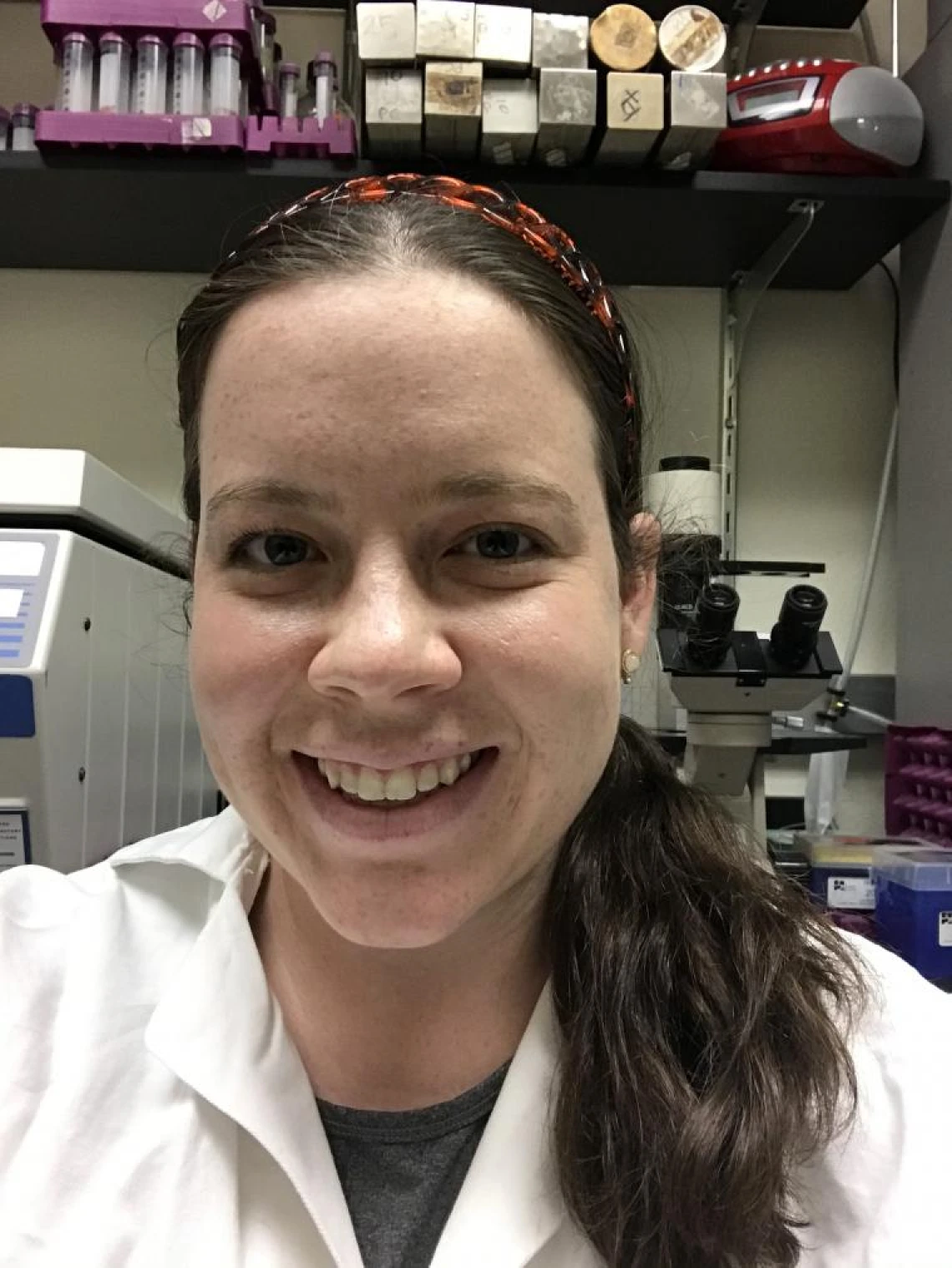Graduate Student Award for Teaching: Mollie Wiegand

Mollie Wiegand
Each spring, the MCB Department recognizes outstanding graduate students in three categories: Scholarship, Service, and Teaching. The award for Teaching is presented to the graduate student with a commitment to teaching or mentoring that goes above and beyond what is required, positive evaluations or other feedback from students, and willingness to help junior graduate students. Students must be nominated to be considered for the award, which is decided by the MCB awards committee.
The 2024 Graduate Award for Teaching is Mollie Wiegand! Mollie completed her undergraduate degree at the University of Arizona from 2014-2018, with a major in Veterinary Science and a minor in Molecular and Cellular Biology.
She started her PhD in the fall of 2019 and is doing her research in the Charest lab. This is how Mollie explained her research to me - “Our lab previously identified an interaction between the small GTPase RAS and the signaling complex mTORC2 in the model organism Dictyostelium, which is often used to study cell migration processes. I helped finish a follow-up project demonstrating that RAS and mTORC2 each mediate cell migration processes in a normal breast epithelial cell line and breast cancer cell lines, and that perturbations to RAS activity in these systems indicate that RAS facilitates mTORC2 activity in these human cell lines as well. I am currently working to establish a system in the normal breast epithelial cell line to determine whether wildtype and mutant RAS affect different subcellular pools of mTORC2 activity, and how dependent these different pools might be on another protein called PI3K. Understanding the basic interactions between these proteins in human cells may also lead to a better understanding of cancer cell signaling and metastatic processes. RAS and PI3K are considered proto-oncogenes, and mTORC2's role in cell migration implicates it in cancer metastasis.”
Clearly, Mollie has a passion for teaching which is also recognized by the faculty in MCB. Preceptoring for Dr. Susan Jorstad's MCB181 classes as an undergraduate was the first place that she felt like she belonged to a community during her undergraduate times. “I love helping students build their own mental frameworks to understand and remember information. Dr. Jorstad encouraged us to never give students the answer, but to ask guiding questions that would help them build such a personally useful framework.” Mollie also likes it when she has been able to share and pass on some excitement about the material itself - “when I'm in this excited mode I find myself referring to different proteins as "this guy" - it's like they're my friends or something!”
Teaching runs in the family. Mollie’s mom was an elementary school teacher and librarian, helped write the educational curriculum for Kartchner Caverns State Park, and wrote grants for artists to visit her small-town school. “There is probably some modeling and love for education passed on there.” Mollie said. Mollie has secured quite a bit of teaching experience in MCB. “I preceptored for Dr. Jorstad's MCB181 four semesters as an undergraduate, TA'd with Dr. Charest for MCB325 Biology of Cancer three semesters, TA'd with Dr. Joyce Schroeder for MCB425 Cancer Discoveries one semester, and TA'd with Dr. Nicole Leitner for MCB181 one semester.”
Some PhD students have a clear vision of their post-graduation plans, while others are still exploring their options. Mollie finds herself in the latter group, facing some uncertainty about her future academic career. Ideally, she aspires to become a professor and teach one day. However, her immediate goal is to dedicate more time to her own research and enhance her wet lab skills. By focusing on these areas, she hopes to successfully graduate and pursue a research-focused postdoctoral position.
Mollie chose UArizona because it offered the right balance for her transition from a small town to a larger city and university. Growing up near Benson, she wanted to give herself time to adjust to the new environment. Although she once considered becoming a veterinarian and helping run her family's ranch in Cochise, her passion for research, especially in Cancer Biology, guided her towards a different path. The prospect of such a significant change was daunting, but UArizona provided a manageable step forward. Mollie decided to pursue a PhD in Molecular and Cellular Biology (MCB) because of Dr. Charest's presence in the department, her involvement with the MCB community as an undergraduate, and her finding inspiration to pursue research in Dr. Schroeder's Cancer Discoveries course as an undergraduate.
We are excited about what the future holds for Mollie, and are sure that whether she ends up teaching, doing research or becoming a veterinarian, she will do it with passion and compassion!

